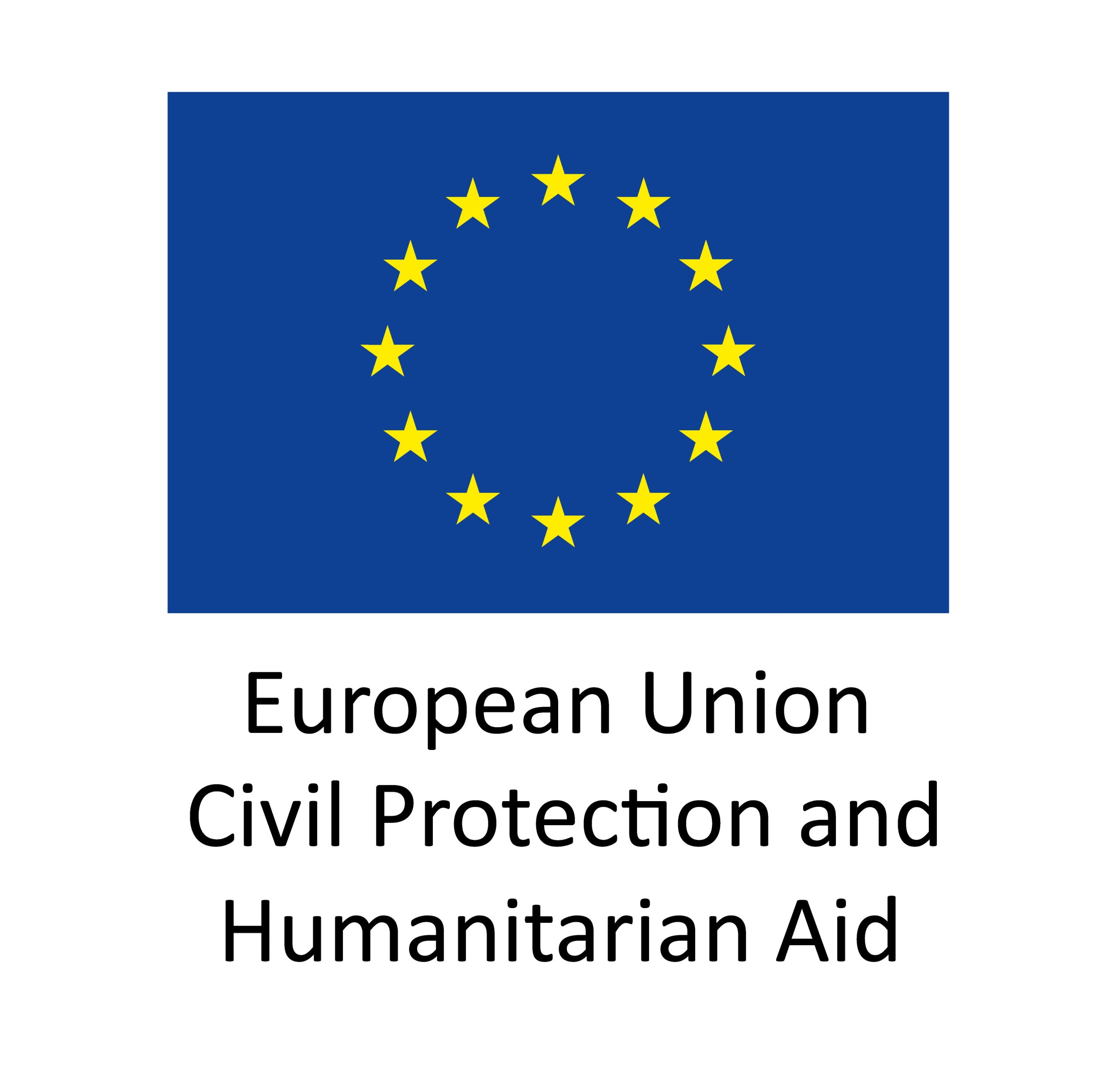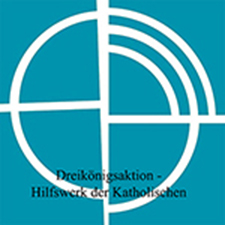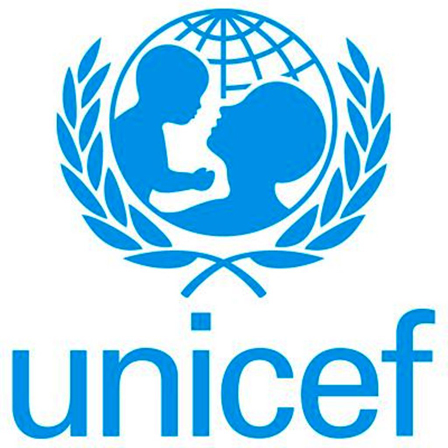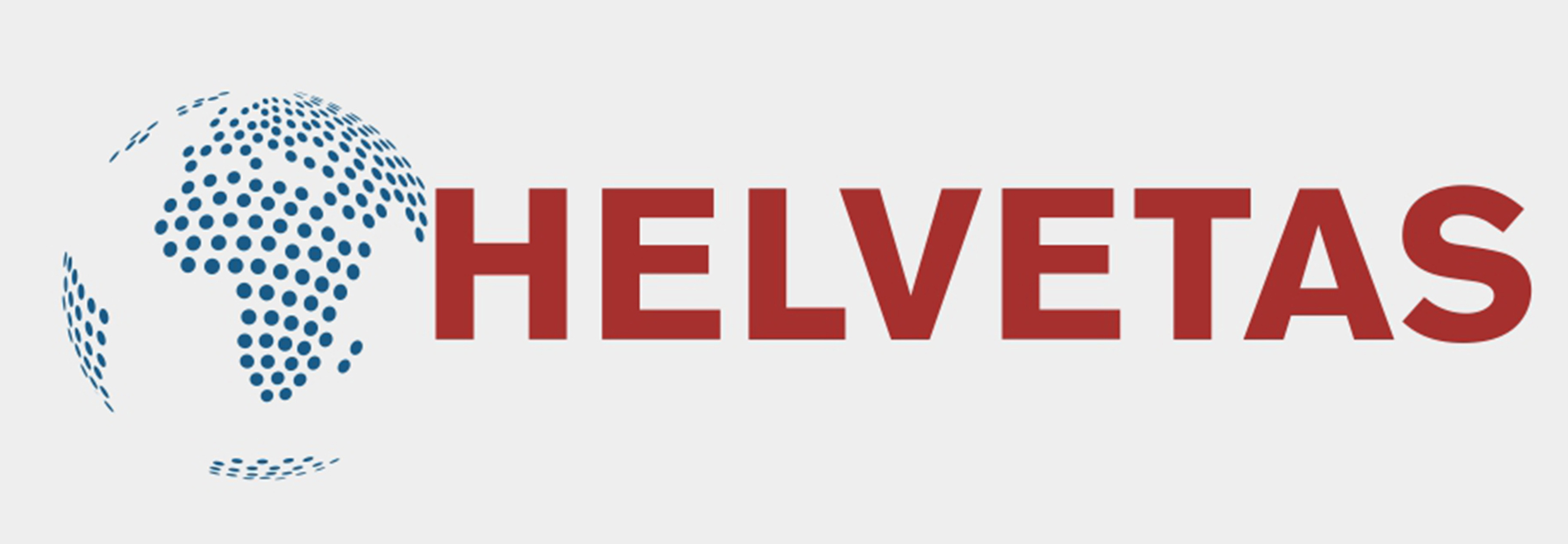Community Agency for Rural Development (CAD) was founded as a Catholic faith-oriented Myanmar NGO on May 4, 2004, by Joseph Kung Za Hmung @ Win Hlaing Oo. The real history of CAD’s inception was motivated by the dead of two sisters of Joseph Win Hlaing Oo @ Kung Za Hmung in Hnaring village of Thang Tlang Township, Chin state, by the remoteness and marginalized poorest region in Myanmar in 1991. Due to lack of medical doctors with medicines scarcity and due to lack of road infrastructure in Hnaring area (Lautu/Lutuv areas), Thang Tlang Township of Chin State, the local people were confined and were dependent on quacks for their sickness. Therefore with curable illness, his two sisters were sadly dead in Hnaring village. By their death, he decided to save the lives of thousands of his local people by improving transport infrastructures for people’s faster and easier movement, by developing the healthcare skills of the local people, by creating larger and faster access to education and modern changing business opportunities.
(more…)
CAD is joining Myanmar government in fighting against Covid-19 Pandemic virus since May 20, 2020. As CAD is the first actor of Chin NGO in Chin state, the poorest region of Myanmar, since 2004, it is responding Covid-19 virus fight against communities and our government.
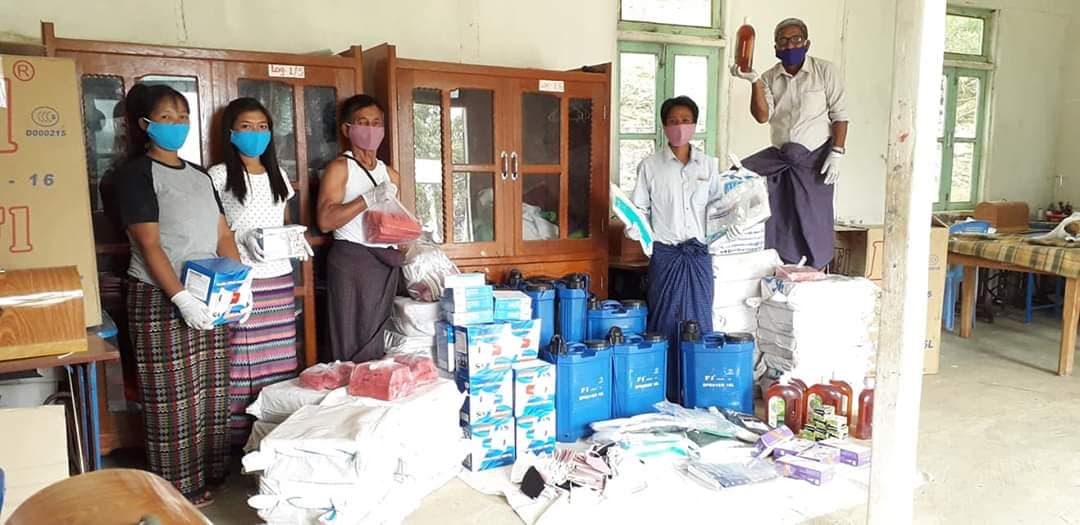
Therefore, CAD had spent its available resources of US$ 12,000 (local currency Ks. 15,000,000) to reduce, to contain the spread of Covid-19 pandemic in our project areas by distributing IEC posters (2000 copies) to 2000 families with tri-languages for the most effective education of Virus awareness by communities, distributing 10000 numbers of soaps to our people, distributing 3000 numbers of special tailored masks to 3000 people, distributing PPEs to village based health volunteers, helping community quarantine centers, providing water resources to the needy and rural health care centers and finally medicines to villagers of locked-downed communities in the central part of Chin state.
CAD had assisted 22 villages of reaching out about 10,000 people in Hakha, Thang tlang and Matupi townships of Chin state, Myanmar. Chin is the poorest state in Myanmar and it has a low population density with limited infrastructure development. This has contributed to a lack of agricultural development and market integration, along with significant out-migration as a result of limited opportunities to diversify livelihoods.
Since 2004, CAD has invested more than US$ 1 million in improving living standard of communities, transforming their agricultural system, building car road connectivity, improving their drinking water system, educating their health awareness, reducing community harm reduction by building bridges and roads, making education available in their communities by building schools and by supporting their village led-nurseries and empowering illiterate youth by opening higher vocational training program in Chin state.
The Coronavirus outbreak actually began in Wuhan, a city in the Hubei province of China. Reports of the first COVID-19 cases started in December 2019. World Health Organization named the virus as Covid-19 and it declared it as Pandemic in March 11, 2020. Corona-viruses are common in certain species of animals, such as cattle and camels. Although the transmission of coronaviruses from animals to humans is rare, this new strain likely came from bats, though one study suggests pangolins may be the origin.
The World Health Organization (WHO) has officially declared the outbreak of COVID-19 a pandemic, after the disease caused by the new coronavirus spread to more than 100 countries and led to tens of thousands of cases within a few months. “We are deeply concerned both by the alarming levels of spread and severity [of COVID-19], and by the alarming levels of inaction,” Tedros Adhanom Ghebreyesus, the director-general of WHO, said at a news conference on today (March 11). “We have therefore made the assessment that COVID-19 can be characterized as a pandemic.” This is the first time WHO has declared a pandemic over a coronavirus, Ghebreyesus said. He noted that the number of COVID-19 cases reported outside China has soared in recent days, rising 13-fold in the past two weeks. However, it remains unclear exactly how the virus first spread to humans. Some reports trace the earliest cases back to a seafood and animal market in Wuhan. It may have been from here that SARS-CoV-2 started to spread to humans.
We are very happy to share you that OBOS which is a Catholic faith based funding agency in Seoul, the Republic of South Korea, approved recently our development program proposal for people in Chin state, Myanmar. Actually, OBOS has already been giving funding to CAD since 2009 till today. The total funding of OBOS to CAD for people in Chin State, Myanmar has totaled US$. 1.5 million in (10) years. Living standards of thousands of local people in remote areas have being uplifted too. From her 15 years’ experience with different donors/funding agencies, CAD finally concluded and believes that OBOS is the most stable and committed funding agency in the world.
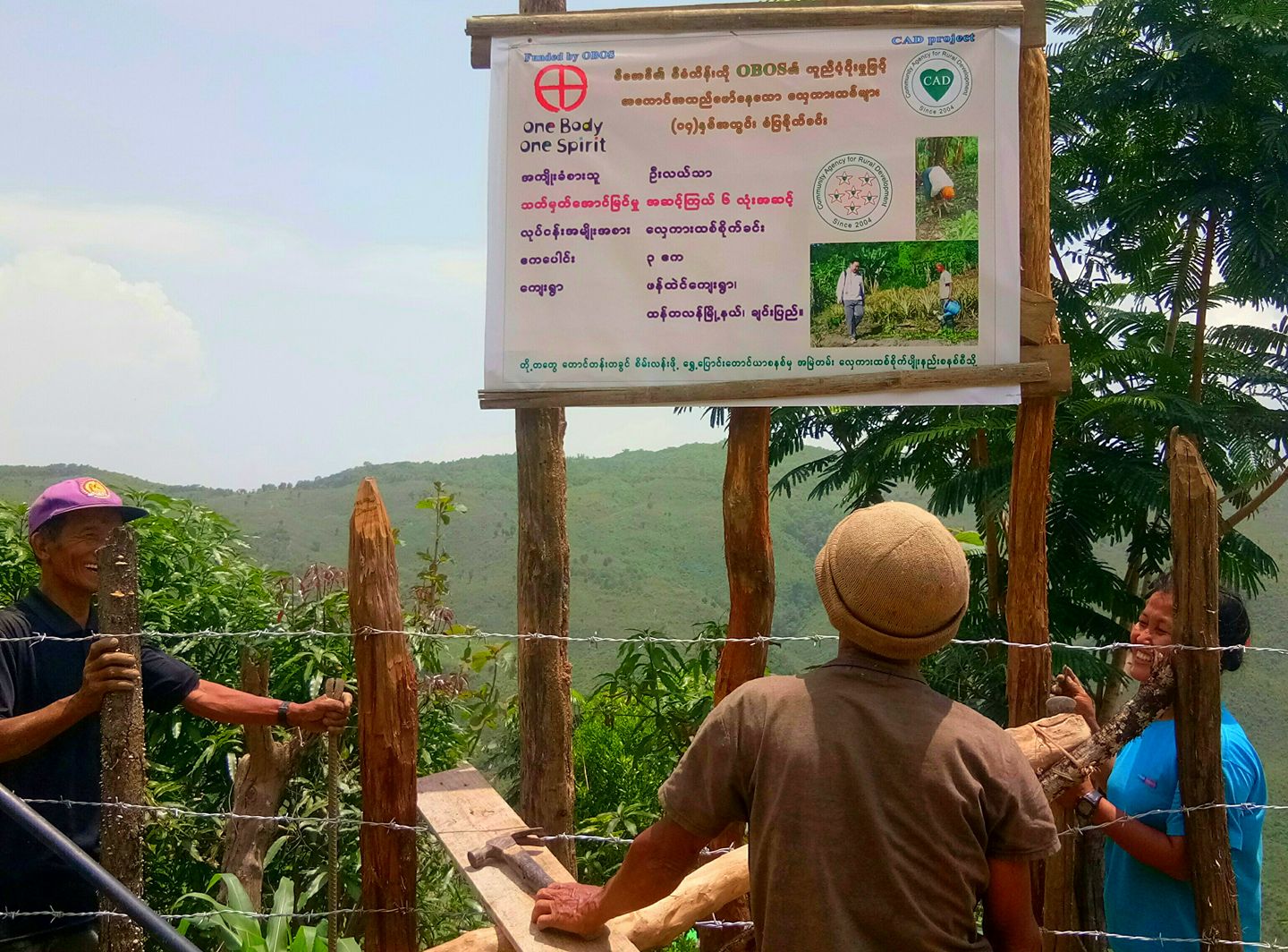

We are very happy to share you that DKA-Austria which is a Catholic faith based funding agency in Austria, approved recently our development program proposal for people in Chin state, Myanmar for (3) years from 2019-2021.
Community Agency for Rural Development (CAD) is one of five Myanmar NGOs (Not-for-profit non-governmental organizations) established by few individual persons in Myanmar during 2000-2004 under the Burmese Military rule (State Law and Order Restoration Council) led by Senior General Than Shwe. CAD is registered to Union Ministry of Home Affairs of the Union of Republic of Myanmar. CAD registration/License number is 1/Local/1850 which is valid till 2023.

In rural and hard-to-reach areas, community members’ heavy reliance on traditional and informal health practitioners can lead to delayed attendance at health centres, and people not receiving the health care they need at the right time.
In Chin State, one of the poorest states in Myanmar, 72 per cent of people in Thantlang villages and 54 per cent in Hakha said they first turn to an informal practitioner in a health emergency.* One Collective Voices participant from Hnaring Village said that although villagers knew the quacks were unrecognized and not government trained, they are available when they are needed. “Even at midnight they come to our home,” she said.” They provide us with medical services and we can pay for it later when we have money.”
Ensuring these practitioners can identify when a patient needs to be referred on to further medical care can make a crucial difference in health outcomes, even the difference between life and death in some cases. A conference held by 3MDG Collective Voices partner Community Agency for Rural Development (CAD), focused on improving the knowledge of informal health care providers – when to refer, how to detect emergencies, and how to apply basic first aid. The conference, which was the first of its kind, brought together formal and informal healthcare providers for the first time in Hakha, Chin State on 31 March to 1 April 2016.
Organized in collaboration with the State Public Health Department, the conference was attended by the State Health Department’s Assistant Director, State Health Officer, Public Health Supervisor, and 27 traditional and informal practitioners from 19 villages of Hakha and Thantlang. To ensure participation and understanding, the conference was conducted in local Chin language.
Participants discussed the important role that informal health service providers can play in referring community members to appropriate health facilities for timely and effective treatment. In addition, the informal service providers themselves learned more about health problems, common diseases in the community and danger signs for emergency cases from conference facilitators from the State Health Department.
According to U Van Tin Hup, Public Health Supervisor:
“I appreciate Community Agency for Rural Development (CAD) for organizing this conference and 3MDG for providing funding support, because the public health service cannot offer strong coverage to remote villages, so people in the villages often use informal healthcare providers who have limited health knowledge. The Ministry of Health now has the chance to improve the knowledge of quacks on healthcare services, including the “do’s and don’ts.” I hope this conference will help them provide first aid and referral services.”
This conference is part of the 3MDG’s broader efforts to contribute to better health for all in Myanmar through a responsible, fair and inclusive health sector. 3MDG is partnering with 25 Civil Society Organizations (CSOs) to improve the understanding of the social factors limiting access to health care, as well as to support a meaningful participation of community members for better services and consumer satisfaction. This initiative is called “Collective Voices: Understanding Community Health Experience.”

A German medial student, Ms. Johanna Graebner was given a farewell by CAD staffs in Yangon Head-Office on 5 August 2016. During her one month volunteering work in CAD organization from July 4 to 5 August, she was assigned to look for new donors from Yangon based business companies and people. With her tireless work for CAD, we have received different companies which are willing to work with us on their CSR (corporate social responsibility). We are grateful to her for her efforts for us and we are willing to welcome more volunteers across the country and the world.
With financial support of BAT, CAD conducted township-wide livelihood survey in Natogyi township, Mandalay region from 20 to 26 July 2016. The finding report of this survey will be published in August.
The long-awaited figures on religious affiliation from Myanmar’s 2014 census were released on 21 July 2016. According to the figures released, Buddhists compromise 87.9 percent of Myanmar’s population, a decrease of 1.5 pc over the past 30 years. The release also reported 6.2 pc of the population as Christian, 4.3 pc Muslim and 0.5 pc of Hindu out of a total estimated population of 51.4 million. The census also identified 1.2 million people not enumerated, including over 1 million in Rakhine State alone.
Myanmar’s previous census in 1983 demarcated 4.9 pc of the country’s population as Christian and 3.9 pc as Muslim, meaning there has been a slight slight increase in major non-Buddhist populations in the past 30 years. The Hindu population was also reported at 0.5 pc in 1983. “It seems that data on the numbers of people not collected in Rakhine State are Muslims,” U Thein Swe, Union Minister for Labour, Immigration and Population said in Nay Pyi Taw, referring to the over 1 million residents of Rakhine State that were not enumerated in the census. Before releasing the census religion data, the Ministry conferred with representative religious organisations. While most of the census data was released last year, data on Myanmar’s population by religious and ethnic composition was withheld due to fears of inciting sectarian tensions during the country’s landmark November election and subsequent political transition to the National League for Democracy government.
“We will release the numbers on religion and we have already prepared to release it. We had planned to release these remaining data since the previous government, but it coincided with the transition period,” Ministry of Labour, Immigration and Population permanent secretary U Myint Kyaing previously told The Myanmar Times.
Figures on Myanmar’s Muslim population were also widely believed to double previous estimates, or account for as much as 8pc of Myanmar’s population. This prediction was not authenticated by today’s release, which pegged Muslims to account for only 4.3pc of the total population.
The long-awaited figures on religious affiliation from Myanmar’s 2014 census were released on 21 July 2016. According to the figures released, Buddhists compromise 87.9 percent of Myanmar’s population, a decrease of 1.5 pc over the past 30 years. The release also reported 6.2 pc of the population as Christian, 4.3 pc Muslim and 0.5 pc of Hindu out of a total estimated population of 51.4 million. The census also identified 1.2 million people not enumerated, including over 1 million in Rakhine State alone.
Myanmar’s previous census in 1983 demarcated 4.9 pc of the country’s population as Christian and 3.9 pc as Muslim, meaning there has been a slight slight increase in major non-Buddhist populations in the past 30 years. The Hindu population was also reported at 0.5 pc in 1983. “It seems that data on the numbers of people not collected in Rakhine State are Muslims,” U Thein Swe, Union Minister for Labour, Immigration and Population said in Nay Pyi Taw, referring to the over 1 million residents of Rakhine State that were not enumerated in the census. Before releasing the census religion data, the Ministry conferred with representative religious organisations. While most of the census data was released last year, data on Myanmar’s population by religious and ethnic composition was withheld due to fears of inciting sectarian tensions during the country’s landmark November election and subsequent political transition to the National League for Democracy government.
“We will release the numbers on religion and we have already prepared to release it. We had planned to release these remaining data since the previous government, but it coincided with the transition period,” Ministry of Labour, Immigration and Population permanent secretary U Myint Kyaing previously told The Myanmar Times.
Figures on Myanmar’s Muslim population were also widely believed to double previous estimates, or account for as much as 8pc of Myanmar’s population. This prediction was not authenticated by today’s release, which pegged Muslims to account for only 4.3pc of the total population.
Our main and strong donor: One Body One Spirit Movement (OBOS) had paid a visit to our head-office on 21 June in Yangon, Myanmar. OBOS has been supporting Chin regional holistic development programs for the poor in remote areas in Chin state, Myanmar since 2009. CAD is always grateful to OBOS for her stance for our growth.
CAD is very pleased to share and report a great news that a woman, bitten by a viper snake, was saved from death by our medicine in Oak Pho village. Her name is Ms. Khine Mar Win, daughter of U Tin Shwe and of Daw Tin Yee.
She was bitten by a viper on 15 July at about 8:30 a.m. and was carried to our medicine bank where two bottles of medicines were injected to her by a health assistant whose name is U Tan Ngwe. After receiving the first aid of our medicine, she was transferred to another 2 township hospital where another 12 numbers of venom were injected to her again and finally to Mandalay hospital to check her kidney if it is affected by the poison of the snake.CAD got phone calls from the villagers expressing their joyful feelings and gratitude to CAD and to Czech embassy for saving her lives. The aforementioned news information was posted in the facebook account name: Aung Myint Thaung Yeu
